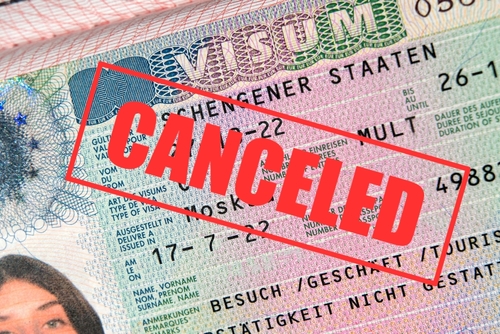
Among the topics of discussion on the agenda in the European parliament is the long-standing story of Russian visas for Europe, considered by some as a new valid attack on the Kremlin while for others it is a useless whim that could be harmful to everyone.
The informal meeting between European foreign ministers, scheduled for this week, according to the Financial Times, could be used to formulate new rules that prevent Russian tourists from circumventing the total bans already in force in some countries.
There is already an agreement since 2007 that facilitates the issuance of simple visas for Russian citizens in order to travel to the EU but, some countries of Eastern and Northern Europe, would propose a total ban. Such a solution is, however, criticized by other nations, such as Germany which, instead, considers this measure excessive and unfairly severe towards civilians who would have no faults related to the villainous and belligerent decisions taken by Putin and his government.
The agreement currently in force allows Russian citizens in possession of a Schengen visa to cross the border and travel for 90 days in the European Union territory. This flow of tourists inevitably crosses all the countries bordering Russia on the European side every day and the latest events have therefore put nations like Estonia and Finland in complicated situation, forcing their governments to take radical measures such as the total ban on passage for Russian citizens already this month or the reduction of down to 10% of the visas issued compared to the quota foreseen so far, in the case of Helsinki.
Currently, the documents necessary for a non-European tourist to travel to the old continent consist of a passport issued in the previous 10 years and valid for at least 3 months following the departure from the European state just visited as well as a visa, in fact, which must be requested to the consulate or embassy of the country to be visited. If the visa is issued by a state belonging to the Schengen list, the same document can be used to travel to all other Schengen countries without any other requests or procedures. The United Kingdom and Ireland, which are not part of the Schengen area, require a special national visa and, in this dispute, could therefore decide independently on the validity of their “entry permits” for Russian citizens.
European nations leaning towards a stricter Russian visa measures are Estonia, Latvia, Lithuania, Finland, Poland and the Czech Republic. Poland and the Baltic countries, in fact, have already closed their borders to Russian tourism since last February (the month in which Putin ordered the invasion of Ukraine by his troops) and will soon be followed by Finland and Denmark while Germany, as already written, represented by Olaf Scholz would have emphasized the uselessness and senselessness to sanction the civilian population by punishing it, actually, for the ongoing war.
Several analysts follow Germany in relation to such views because the total ban could dangerously hinder, even the escape of those who have never been in favor of the war perpetrated by their nation against Ukraine. That’s why another hypothesis, therefore, consists in making the request for entry documents for the countries of the European Union only more complex and expensive and keeping visas in force for humanitarian reasons and for dissidents.
Another firm supporter of the impracticability of a total ban on Russian visas for Europe is Josep Borrell, representative for EU foreign policy who, in an interview with the Austrian broadcaster ORF, reiterated his opposition to the ban but to be in favor to a more selective policy.
Author GWL



 Subscribe
Subscribe